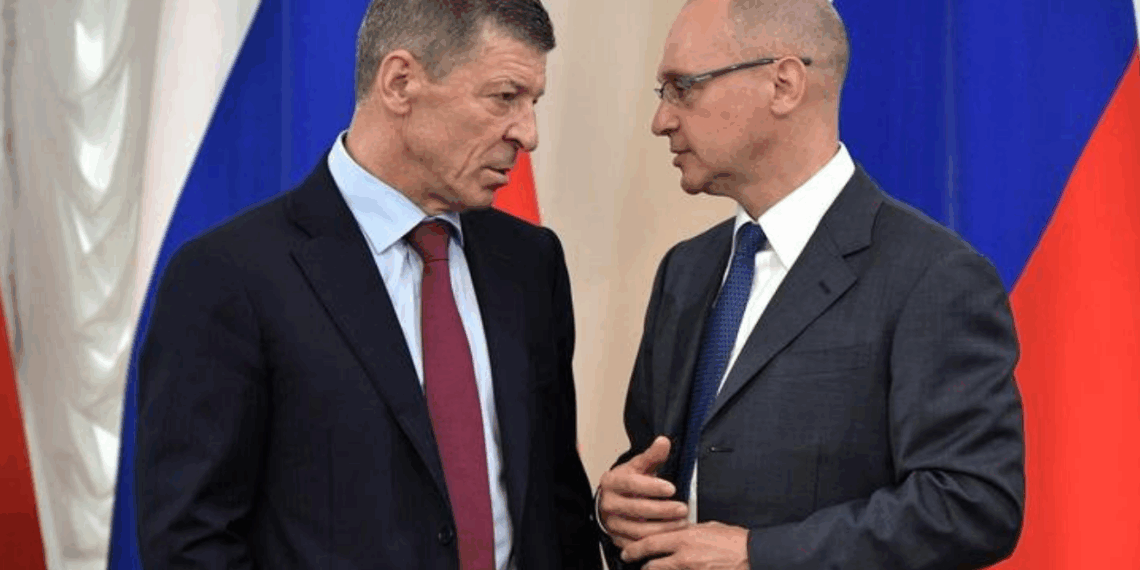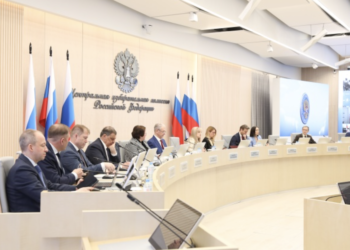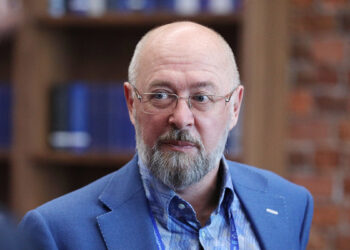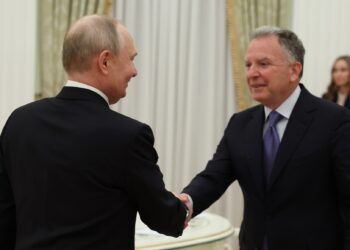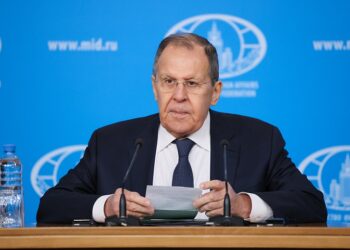MOSCOW (Realist English). The Presidential Administration of Russia is preparing a potential redistribution of authority between deputy chiefs Sergei Kiriyenko and Dmitry Kozak, according to Vedomosti, citing seven sources within federal structures and on Moscow’s Staraya Ploshchad. The restructuring reflects a strategic shift in the Kremlin’s approach to managing influence in contested regions such as Abkhazia, Transnistria, Armenia, and beyond.
The discussion comes as foreign policy responsibilities that were once overseen by Kozak are increasingly being transferred to Kiriyenko, particularly since late 2024.
According to sources familiar with the talks, three main scenarios are under consideration:
- Establishing a new political directorate focused exclusively on managing Russia’s “external track”
- Transferring Kozak’s key departments — including the Directorate for Cross-Border Cooperation and the Directorate for Interregional and Cultural Ties with Foreign Countries — under Kiriyenko’s supervision
- Creating new subdivisions within existing domestic policy structures, such as the Directorate for Internal Policy (UVP) or the Directorate for Monitoring and Analysis of Social Processes (UMA)
While no formal decision has been made, Kremlin spokesperson Dmitry Peskov acknowledged that such changes are under active discussion. “The Administration is a flexible mechanism. It’s natural for portfolios to shift between deputy chiefs depending on the context,” he said.
Kiriyenko’s growing role in external operations
Kiriyenko currently oversees four departments: Internal Policy (UVP), Social Monitoring and Analysis (UMA), Public Projects, and ICT. Since 2022, he has also taken charge of the Kremlin’s strategy in Donbas, organizing the referendums in occupied territories later annexed by Russia. His team has played a central role in governance and political integration efforts in the new regions.
From late 2024, his portfolio expanded further to include Abkhazia, South Ossetia, Moldova, Transnistria, and most recently, Armenia — territories historically handled by Kozak’s cross-border and CIS-focused divisions. The Directorate for Cross-Border Cooperation, headed by Alexey Filatov, is now operating under Kiriyenko’s strategic direction.
Notably, neither of Kiriyenko’s predecessors — Vladislav Surkov nor Vyacheslav Volodin — exercised such far-reaching coordination over post-Soviet affairs. Surkov handled Ukraine policy in a narrower capacity as a presidential aide, while Volodin had no external policy role at all.
A shift in doctrine, not just in structure
This is more than an internal reshuffle. The redistribution of power within the Kremlin’s top management reflects a deeper transformation in how Russia organizes and deploys its influence operations abroad, especially across the post-Soviet space, where the stakes for Moscow have grown dramatically.
Kiriyenko is no longer just the Kremlin’s domestic political manager. He is emerging as the chief architect of Russia’s hybrid influence apparatus, coordinating electoral engineering, governance exports, political technologies, and public diplomacy across sensitive regions.
The Kremlin’s internal restructuring signals a strategic recalibration of its external influence architecture, centralizing key decision-making under a trusted technocrat. As Russia faces mounting pressure in the near abroad, the growing authority of Kiriyenko reflects not only his loyalty but his role as a pivotal operator in Russia’s statecraft below the threshold of war.


